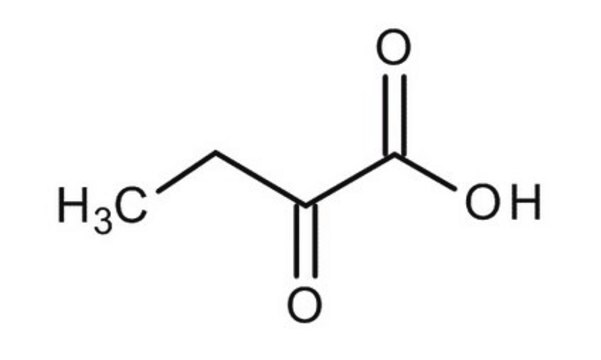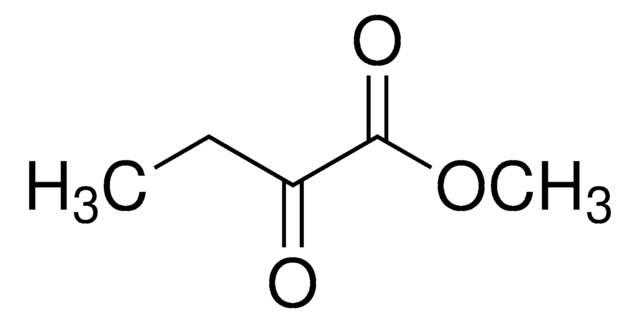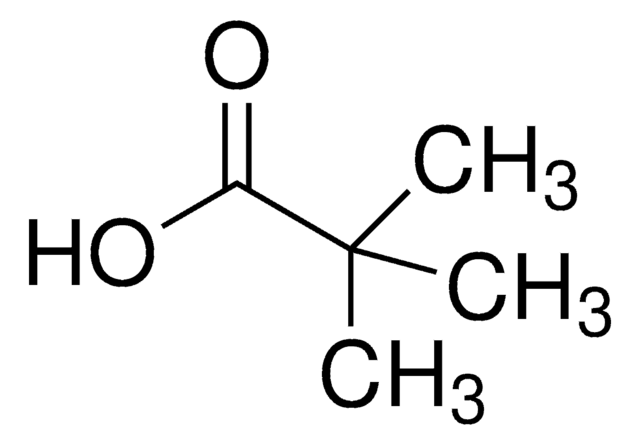W372307
2-Oxobutyric acid
≥95%, FG
Synonym(s):
2-Ketobutyric acid, α-Ketobutyric acid, Propionylformic acid
About This Item
Recommended Products
biological source
synthetic
Quality Level
grade
FG
Fragrance grade
Kosher
Agency
follows IFRA guidelines
reg. compliance
EU Regulation 1223/2009
EU Regulation 1334/2008 & 872/2012
Assay
≥95%
bp
84 °C/20 mmHg (lit.)
mp
30-34 °C (lit.)
application(s)
flavors and fragrances
Documentation
see Safety & Documentation for available documents
food allergen
no known allergens
fragrance allergen
no known allergens
Organoleptic
caramel; creamy; brown; sweet
storage temp.
2-8°C
SMILES string
CCC(=O)C(O)=O
InChI
1S/C4H6O3/c1-2-3(5)4(6)7/h2H2,1H3,(H,6,7)
InChI key
TYEYBOSBBBHJIV-UHFFFAOYSA-N
Looking for similar products? Visit Product Comparison Guide
General description
related product
Signal Word
Danger
Hazard Statements
Precautionary Statements
Hazard Classifications
Eye Dam. 1 - Skin Corr. 1B
Storage Class Code
8A - Combustible corrosive hazardous materials
WGK
WGK 3
Flash Point(F)
179.6 °F - closed cup
Flash Point(C)
82 °C - closed cup
Personal Protective Equipment
Certificates of Analysis (COA)
Search for Certificates of Analysis (COA) by entering the products Lot/Batch Number. Lot and Batch Numbers can be found on a product’s label following the words ‘Lot’ or ‘Batch’.
Already Own This Product?
Find documentation for the products that you have recently purchased in the Document Library.
Customers Also Viewed
Our team of scientists has experience in all areas of research including Life Science, Material Science, Chemical Synthesis, Chromatography, Analytical and many others.
Contact Technical Service










